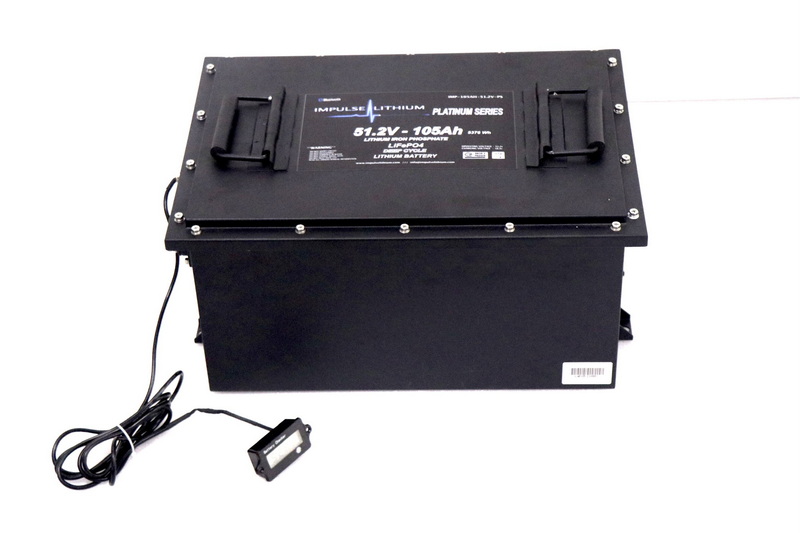Content Menu
● Understanding Electric Golf Cart Batteries
>> Deep-Cycle Lead-Acid Batteries
>> Lithium-Ion Batteries
● How Often Should You Charge Your Golf Cart?
>> After Each Use
>> Frequency Based on Usage
>> Environmental Factors
● Best Practices for Charging Your Golf Cart
>> Use the Right Charger
>> Avoid Overcharging
>> Monitor Battery Levels
>> Charge in a Cool, Dry Place
● Signs Your Golf Cart Needs Charging
>> Decreased Performance
>> Warning Lights
● Extending the Life of Your Golf Cart Batteries
>> Regular Maintenance
>> Equalizing Charges
>> Store Properly
● Additional Considerations for Golf Cart Owners
>> Upgrading Your Battery
>> Understanding Battery Lifespan
>> Battery Recycling
● Conclusion
● Frequently Asked Questions
>> 1. How long does it take to charge an electric golf cart?
>> 2. Can I leave my golf cart plugged in all the time?
>> 3. What should I do if my golf cart batteries are not holding a charge?
>> 4. How can I tell if my golf cart batteries are bad?
>> 5. Is it better to charge my golf cart batteries slowly or quickly?
Electric golf carts have become increasingly popular for both recreational and practical uses. Whether you're using one on the golf course, in your neighborhood, or for other purposes, understanding how often to charge your electric golf cart is crucial for maintaining battery health and ensuring optimal performance. In this article, we will explore the best practices for charging your electric golf cart, the factors that influence charging frequency, and tips for extending battery life.

Understanding Electric Golf Cart Batteries
Electric golf carts typically use deep-cycle lead-acid batteries or lithium-ion batteries. Each type has its own charging requirements and lifespan.
Deep-Cycle Lead-Acid Batteries
Deep-cycle lead-acid batteries are the most common type used in electric golf carts. They are designed to be discharged and recharged repeatedly. These batteries require regular charging to maintain their health and performance.
Lithium-Ion Batteries
Lithium-ion batteries are becoming more popular due to their lighter weight and longer lifespan. They can be charged more frequently without damaging the battery, making them a convenient option for many users.
How Often Should You Charge Your Golf Cart?
After Each Use
The general recommendation is to charge your electric golf cart after each use. This practice helps keep the batteries topped up and prevents them from discharging too much. When batteries are allowed to discharge below a certain level, it can lead to sulfation, which can damage the battery and reduce its lifespan.
Frequency Based on Usage
If you use your golf cart frequently, charging it after each use is essential. However, if you only use it occasionally, you may not need to charge it as often. In such cases, it is advisable to charge the batteries at least every 45 to 60 days, even if the cart has not been used. This helps maintain battery health and prevents issues related to prolonged inactivity.
Environmental Factors
The environment in which you operate your golf cart can also affect how often you should charge it. For example, if you live in a hot climate, the batteries may discharge more quickly due to increased usage of air conditioning or other electrical components. In such cases, more frequent charging may be necessary.
Best Practices for Charging Your Golf Cart
Use the Right Charger
Always use the charger that is specifically designed for your golf cart's battery type. Using the wrong charger can lead to overcharging or undercharging, both of which can damage the battery.
Avoid Overcharging
While it's important to charge your golf cart after each use, be cautious not to overcharge it. Most modern chargers have built-in mechanisms to prevent overcharging, but it's still a good idea to unplug the charger once the batteries are fully charged.
Monitor Battery Levels
Regularly check the battery levels to ensure they are not discharging too much. Most golf carts have a battery meter that indicates the charge level. If the meter shows a low charge, it's time to plug in the charger.
Charge in a Cool, Dry Place
When charging your golf cart, try to do so in a cool, dry place. Excessive heat can damage the batteries and reduce their lifespan. If possible, avoid charging in direct sunlight or in a hot garage.
Signs Your Golf Cart Needs Charging
Decreased Performance
If you notice that your golf cart is not performing as well as it used to, it may be a sign that the batteries need charging. A decrease in speed or range can indicate that the batteries are not holding a charge effectively.
Warning Lights
Many electric golf carts come equipped with warning lights that indicate when the battery is low. Pay attention to these indicators and charge the batteries as soon as possible to avoid getting stranded.

Extending the Life of Your Golf Cart Batteries
Regular Maintenance
Regular maintenance is key to extending the life of your golf cart batteries. This includes cleaning the battery terminals, checking for corrosion, and ensuring that the batteries are securely fastened in place.
Equalizing Charges
For lead-acid batteries, performing an equalizing charge every few months can help balance the charge across all cells. This process involves charging the batteries to a higher voltage for a short period, which can help prevent sulfation and extend battery life.
Store Properly
If you plan to store your golf cart for an extended period, make sure to charge the batteries fully before doing so. Store the cart in a cool, dry place and check the battery levels every month to ensure they remain charged.
Additional Considerations for Golf Cart Owners
Upgrading Your Battery
If you find that your golf cart batteries are not meeting your needs, consider upgrading to a higher capacity battery. Lithium-ion batteries, for example, offer longer life and faster charging times compared to traditional lead-acid batteries. This upgrade can significantly enhance your golf cart's performance and reduce the frequency of charging.
Understanding Battery Lifespan
The lifespan of golf cart batteries can vary significantly based on usage, maintenance, and charging practices. On average, lead-acid batteries last between 4 to 6 years, while lithium-ion batteries can last up to 10 years or more. Understanding these lifespans can help you plan for replacements and budget accordingly.
Battery Recycling
When it comes time to replace your golf cart batteries, be sure to recycle them properly. Lead-acid batteries contain hazardous materials that can be harmful to the environment if not disposed of correctly. Many auto parts stores and recycling centers offer battery recycling programs.
Conclusion
Charging your electric golf cart properly is essential for maintaining battery health and ensuring optimal performance. By following the recommended practices for charging frequency, using the right charger, and monitoring battery levels, you can extend the life of your golf cart batteries and enjoy a reliable ride for years to come. Remember to charge after each use, consider environmental factors, and perform regular maintenance to keep your golf cart in top shape.

Frequently Asked Questions
1. How long does it take to charge an electric golf cart?
Charging times can vary based on the battery type and charger used. Generally, it takes about 4 to 8 hours to fully charge a golf cart battery. Using a fast charger can reduce this time significantly.
2. Can I leave my golf cart plugged in all the time?
While modern chargers are designed to prevent overcharging, it is still advisable to unplug the charger once the batteries are fully charged. Leaving it plugged in for extended periods can lead to battery wear over time.
3. What should I do if my golf cart batteries are not holding a charge?
If your batteries are not holding a charge, it may be time to check for issues such as corrosion on terminals, low water levels in lead-acid batteries, or even consider replacing the batteries if they are old or damaged.
4. How can I tell if my golf cart batteries are bad?
Signs of bad batteries include decreased performance, a significant drop in range, and physical damage or swelling. If you notice these issues, it may be time to test or replace your batteries.
5. Is it better to charge my golf cart batteries slowly or quickly?
Slow charging is generally better for battery health, as it reduces heat buildup and stress on the battery cells. However, if you need a quick charge, using a fast charger occasionally is acceptable, but it should not be the norm.










































